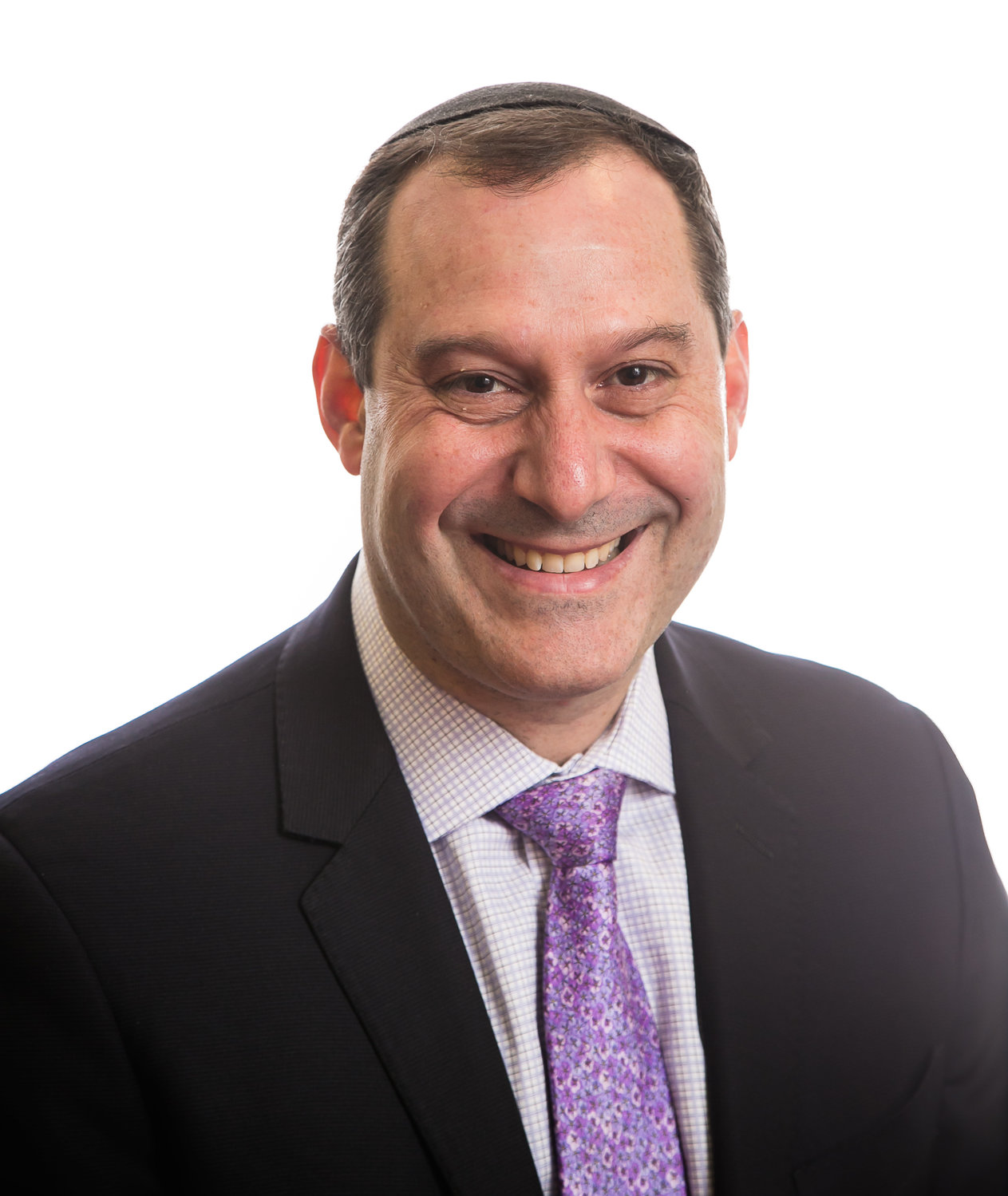West Hempstead rabbi named executive V.P. of Religious Zionists of America
Rabbi Ari Rockoff, of West Hempstead, says that no matter what job he holds, his main focus is to remain committed to a life of service. Rockoff said that this tradition runs deep in his family, going back to his grandfather Rabbi Irving Rockoff, who served as the spiritual leader of Beth Shalom in Mineola from the 1950s to the 1970s.
“My grandfather was a significant role model in my life,” Rockoff, 46, said, “because he served in many different synagogues and community leadership roles. I think for me, a lot of what I do is simply continuing a legacy.”
Last month, Rockoff was named executive vice president of Religious Zionists of America, the U.S.-based branch of Mizrachi, the global religious Zionist movement. Founded in 1914, the RZA aims to inspire a commitment to religious Zionism, the preservation of Jewish political freedom, the enhancement of Jewish religious life in Israel and the promotion of immigration to Israel.
“I am excited to play a leadership role in helping to shape the next chapter for this historic organization to more effectively reach and inspire our community,” Rockoff said.
In this role, he said, he hoped to inspire a new generation of American Jews to share in the responsibility for Israel’s future. He also planned to use his experience in organizational strategy to develop the national infrastructure of the RZA and leverage its reach and impact in the North American Jewish community.
“Rabbi Rockoff is one of the country’s most dynamic Jewish communal leaders,” RZA Co-president Martin Oliner, who lives in Lawrence, stated in a news release. “He possesses a world-class knowledge of organizational strategy and management and is recognized throughout the community for his work with many of the largest national Jewish institutions. We are excited that he has joined the RZA and with his vision, we will continue to new heights.”
Rockoff spent more than a decade at his alma mater, Yeshiva University, where he was on the founding team of the Center for the Jewish Future and the lead designer of ChampionsGate, a leadership conference that brought together hundreds of Jewish lay leaders and professionals from around the country. Last year, Rockoff became the director of strategic partnerships for the Orthodox Union, the oldest and largest umbrella organization for the North American Orthodox Jewish community. He lives in West Hempstead with his wife, Deborah, and their five children.
“I try not to think about the significance of this new role too much,” Rockoff said. “I just try to do good and put myself in places where I’m surrounded by good people that I can learn from and be inspired by, and find places where I can make an impact. It’s not a career, it’s a calling.”
From January to March, Rockoff led the World Mizrachi’s Orthodox Israel Coalition, a partnership of Orthodox and religious Zionist groups running as a combined slate in the World Zionist Congress elections. RZA Co-President Rabbi Leonard Matanky said that based on how successful the coalition was in garnering votes, he believes that Rockoff will be a great addition to his organization.
“As Rabbi Rockoff joins our professional team,” Matanky said, “we hope to harness a great opportunity for our organization as we look forward to building upon the solid foundation that it has developed over the many decades.”
Among Rockoff’s goals as the group’s executive vice president, he said, is finding ways to effectively inspire Jews of all ages. Part of accomplishing that, he said, is helping to get past issues such as anti-Semitism.
“So much of the rhetoric of anti-Semitism — or any issue, for that matter — is just the lack of knowledge and a lack of connection to others,” Rockoff said. “We need to strengthen bonds, create bridges, engage the youth and engage the community in a very personal way.”
He mentioned that American television shows such as “Homeland,” which is based on the Israeli series, “Prisoners of War,” show that there are many commonalities among different communities. “The idea is that there are so many relatable points of connection that we can make,” Rockoff said. “I think it’s very important for us to identify those points.”






